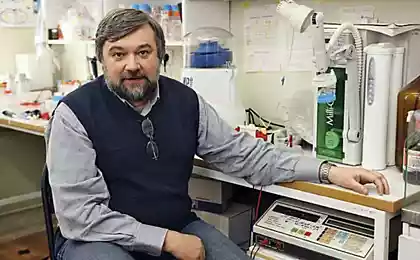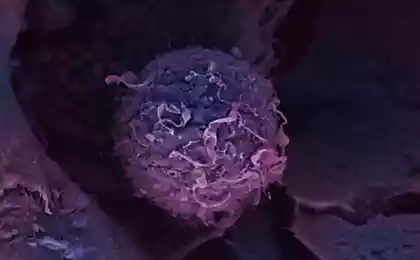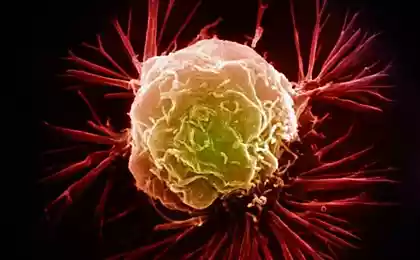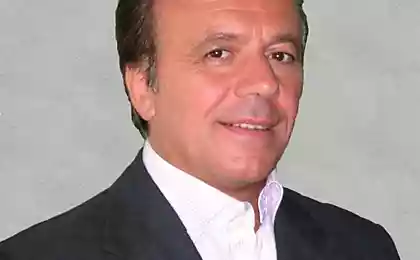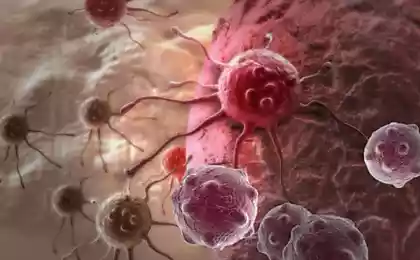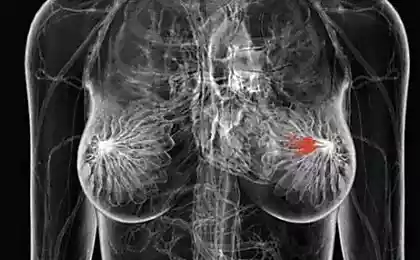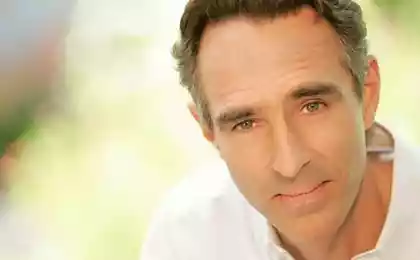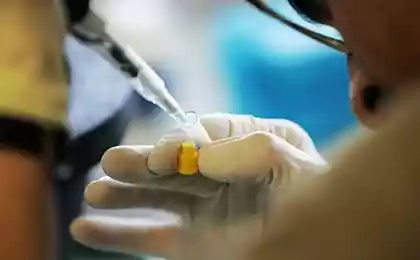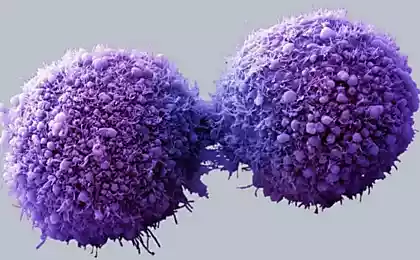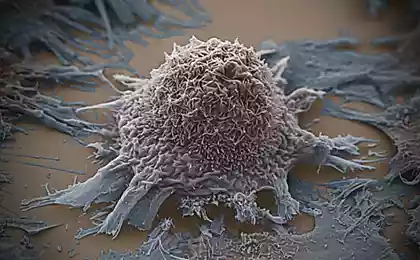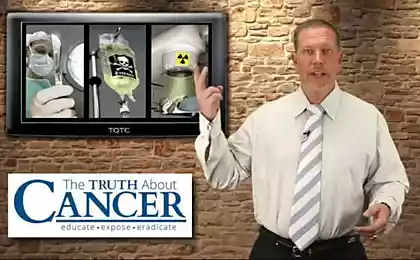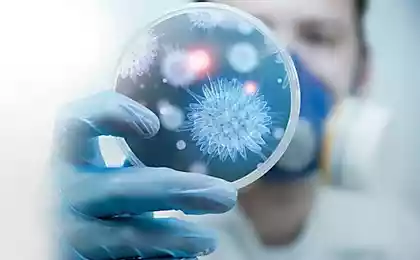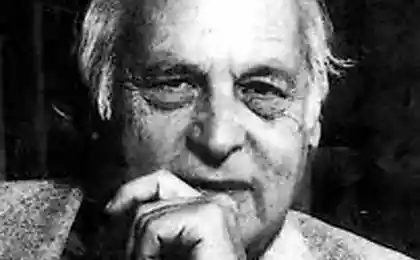440
Psychotherapy cancer
C. Simonton, S. Simonton's "cancer Therapy" Publishing house "Piter", Saint Petersburg, 2001. This book is of great interest not only for specialists (oncologists, psychologists, psychotherapists), but for whom life circumstances have pushed the problem of cancer. The book is written by two American researchers, doctor Carl Simonton, radiation oncologist and psychologist Stephanie Simonton.
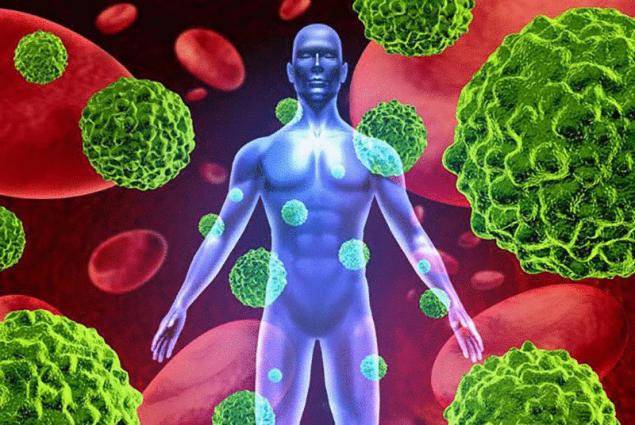
The authors consider the problem of the origin and treatment of the cancer from the position of a holistic understanding of the human body, in which mental and physiological processes are in constant interaction. This interaction leads to as development in the body in various disease States (pathogenesis), and the process of restoring health (sanogenesis).
This approach is called psychosomatic (in Latin, psyche – soul and soma – body) is generally accepted in scientific medicine in the understanding of diseases such as hypertension, peptic ulcer and 12 duodenal ulcer, and many others. Therefore, for the official medical practice has long been a traditional use in the treatment of various somatic diseases psychological methods of psychotherapy, autogenic training, etc., along with drug therapy, surgery, nutrition, physiotherapy.
However, a psychosomatic approach to the understanding of the causes of malignant tumors and the development on this basis of strategy of treatment of cancer patients is relatively new to the national Oncology and only in recent years has been very slow to penetrate in the Oncology clinic.
In his book K. and S. Simonton from these positions, consider the data of modern science about carcinogenic factors contributing to the development of malignant tumors. In a lifetime each person is exposed to a large number of different chemical carcinogens (some hydrocarbons, aniline dyes, asbestos, etc.), ultraviolet and ionizing radiation that cause mutations in the genetic apparatus of cells, which can eventually cause them to transform or, as they say, transformation into cancer cells. The same may apply, and some viruses. However, despite the constant contact with different carcinogens, the vast majority of people are not diagnosed with cancer.
Therefore, in our body there is system protection or protecting normal cells from the action of carcinogenic factors, or destroying transformed cells before they will give the tumor growth. The most important part of this defense is the body's immune system.
The immune system consists of several types of cells and they produce protein molecules and is designed to protect the body from all foreign and harmful to his life. It is well known, for example, how effectively the immune system protects our body from infection.
The authors focus their attention on the impact on the immune system of our experiences, emotions, General state of our psyche. Back in the 1920-ies the French scientist H. Selye proved that long-term strong emotional experiences can cause in laboratory animals a disease. This discovery, confirmed by modern researchers, it is very important for Oncology. First, it proves that emotional stress in some cases can suppress the immune system to weaken, so the body's natural defenses, which can lead to the development of various diseases and including cancer. Second, these studies confirm that any system of cancer prevention only then will full and is quite effective if you will consider the role of emotional state, will include approaches aimed at improving his mind.
Thirdly, for the successful treatment of each cancer patient should be sure to "tune in" to recovery. Sometimes for successful treatment the patient may need to change something in their attitude towards everyday life problems as much as possible to get rid of negative emotions. The authors emphasize that the most important thing is to take responsibility for their health and for their lives in their hands. Only under these conditions, a sick person can turn from a passive consumer of medical care to an active participant in your recovery.
In establishing and defending such an active position of the sick person is the pathos and the main value of this book.
The authors also pay great attention to the relationship of the patient with the family, the role of the psychologist and psychotherapist in the treatment of cancer patients. No wonder the psychologist became a full employee of the Oncology clinics in European countries and in the United States. In some of our clinics also began to work with psychologists, and more and more people turns to them for help.
Lot of space in the book is devoted to various methods of psychotherapy, and thus, according to the authors, it is important that psychological support for patients, psychotherapy in any case does not oppose the main methods of treatment adopted in clinical Oncology – chemotherapy, radiation, surgery. published
G. J. Zeitlin, M. D., head. Department of rehabilitation Institute of pediatric Oncology and Hematology, Russian cancer research center them. N. N. Blokhin of the RAMS.
P. S. And remember, only by changing their consumption — together we change the world! ©
Source: www.vmpr.ru/index.php?option=com_content&view=article&id=351&Itemid=522

The authors consider the problem of the origin and treatment of the cancer from the position of a holistic understanding of the human body, in which mental and physiological processes are in constant interaction. This interaction leads to as development in the body in various disease States (pathogenesis), and the process of restoring health (sanogenesis).
This approach is called psychosomatic (in Latin, psyche – soul and soma – body) is generally accepted in scientific medicine in the understanding of diseases such as hypertension, peptic ulcer and 12 duodenal ulcer, and many others. Therefore, for the official medical practice has long been a traditional use in the treatment of various somatic diseases psychological methods of psychotherapy, autogenic training, etc., along with drug therapy, surgery, nutrition, physiotherapy.
However, a psychosomatic approach to the understanding of the causes of malignant tumors and the development on this basis of strategy of treatment of cancer patients is relatively new to the national Oncology and only in recent years has been very slow to penetrate in the Oncology clinic.
In his book K. and S. Simonton from these positions, consider the data of modern science about carcinogenic factors contributing to the development of malignant tumors. In a lifetime each person is exposed to a large number of different chemical carcinogens (some hydrocarbons, aniline dyes, asbestos, etc.), ultraviolet and ionizing radiation that cause mutations in the genetic apparatus of cells, which can eventually cause them to transform or, as they say, transformation into cancer cells. The same may apply, and some viruses. However, despite the constant contact with different carcinogens, the vast majority of people are not diagnosed with cancer.
Therefore, in our body there is system protection or protecting normal cells from the action of carcinogenic factors, or destroying transformed cells before they will give the tumor growth. The most important part of this defense is the body's immune system.
The immune system consists of several types of cells and they produce protein molecules and is designed to protect the body from all foreign and harmful to his life. It is well known, for example, how effectively the immune system protects our body from infection.
The authors focus their attention on the impact on the immune system of our experiences, emotions, General state of our psyche. Back in the 1920-ies the French scientist H. Selye proved that long-term strong emotional experiences can cause in laboratory animals a disease. This discovery, confirmed by modern researchers, it is very important for Oncology. First, it proves that emotional stress in some cases can suppress the immune system to weaken, so the body's natural defenses, which can lead to the development of various diseases and including cancer. Second, these studies confirm that any system of cancer prevention only then will full and is quite effective if you will consider the role of emotional state, will include approaches aimed at improving his mind.
Thirdly, for the successful treatment of each cancer patient should be sure to "tune in" to recovery. Sometimes for successful treatment the patient may need to change something in their attitude towards everyday life problems as much as possible to get rid of negative emotions. The authors emphasize that the most important thing is to take responsibility for their health and for their lives in their hands. Only under these conditions, a sick person can turn from a passive consumer of medical care to an active participant in your recovery.
In establishing and defending such an active position of the sick person is the pathos and the main value of this book.
The authors also pay great attention to the relationship of the patient with the family, the role of the psychologist and psychotherapist in the treatment of cancer patients. No wonder the psychologist became a full employee of the Oncology clinics in European countries and in the United States. In some of our clinics also began to work with psychologists, and more and more people turns to them for help.
Lot of space in the book is devoted to various methods of psychotherapy, and thus, according to the authors, it is important that psychological support for patients, psychotherapy in any case does not oppose the main methods of treatment adopted in clinical Oncology – chemotherapy, radiation, surgery. published
G. J. Zeitlin, M. D., head. Department of rehabilitation Institute of pediatric Oncology and Hematology, Russian cancer research center them. N. N. Blokhin of the RAMS.
P. S. And remember, only by changing their consumption — together we change the world! ©
Source: www.vmpr.ru/index.php?option=com_content&view=article&id=351&Itemid=522




